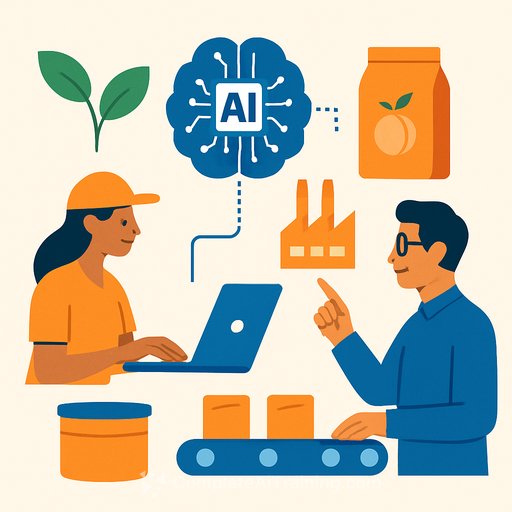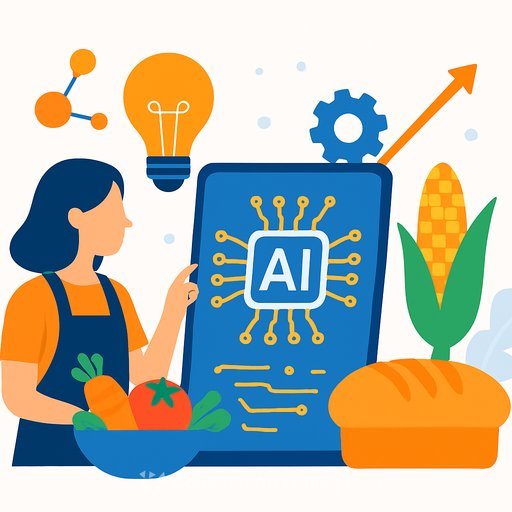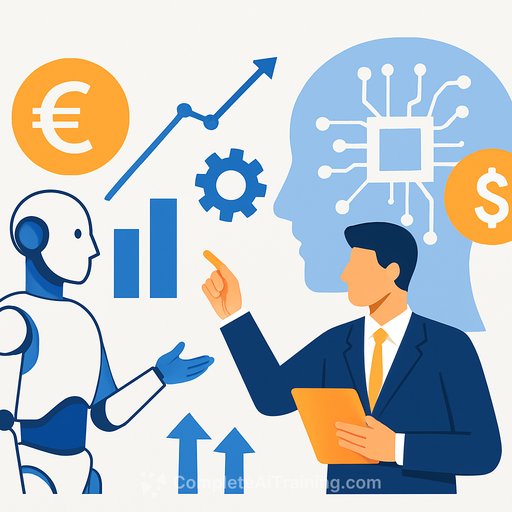Nestlé and IBM Use AI to Transform Packaging in Manufacturing
Nestlé and IBM Research have partnered to apply AI in developing advanced packaging materials, aiming to improve sustainability and efficiency in food manufacturing. Their collaboration focuses on using generative AI to identify new packaging solutions that meet strict food safety, quality, and environmental standards.
Finding packaging materials that balance performance and recyclability is a long process, often requiring years of research. Nestlé is committed to reducing virgin plastic use and increasing recyclable mono-material and paper-based packaging. The challenge lies in discovering materials that protect products effectively while being cost-efficient and sustainable.
Advanced AI Accelerates Material Discovery
The teams at Nestlé and IBM Research use machine learning models trained on both public and proprietary material data to build a knowledge base covering material properties and structures. A chemical language model is adapted to understand how molecular patterns relate to physical and chemical traits.
This approach allows IBM Research to create a regression transformer tool. It analyzes the relationship between molecular structures and their performance, enabling the system to propose packaging materials optimized for protection against moisture, oxygen, and temperature changes. These factors are critical for maintaining product shelf life and quality.
Nestlé’s goal is to find packaging materials that meet three core criteria:
- Functionality
- Recyclability
- Cost-effectiveness
Stefan Palzer, Chief Technology Officer at Nestlé, highlights that this AI-powered language model showcases how the company is advancing digital transformation within food and beverage production. Such technology can speed up the development of more sustainable packaging across various product categories.
Digital Tools Reshape Production and Development
Beyond packaging, Nestlé integrates AI, automation, and data analytics to enhance manufacturing efficiency, product design, and nutrition services. AI-driven algorithms assist product development teams in balancing formulation variables such as ingredients, nutrition, cost, and environmental impact, ensuring that product quality remains high while meeting sustainability targets.
In manufacturing, digital twin technology creates virtual replicas of factory equipment and processes. This allows engineering teams to simulate changes and identify efficiency improvements without halting production. It also reduces downtime and speeds troubleshooting when adapting equipment for new products.
Nestlé also employs personalized digital nutrition platforms that provide dietary guidance based on individual data. These tools support both human and pet nutrition businesses using predictive algorithms.
R&D Investment Supports Next-Generation Manufacturing
Nestlé has launched a dedicated innovation centre focused on emerging technologies in food and nutrition. This facility evaluates and refines advanced solutions such as real-time sensor systems, robotic automation, and custom coding frameworks optimized for high-volume data.
Artificial intelligence remains a key focus, especially for high-performance computing tasks. The centre is also exploring virtual and mixed reality tools to support staff training, remote collaboration, and equipment diagnostics. These efforts aim to improve efficiency across research, development, and manufacturing while maintaining product quality and safety.
For product development professionals seeking to deepen their AI skills, exploring relevant courses can be valuable. Resources like Complete AI Training’s courses by job offer targeted learning paths tailored to industry applications.
Your membership also unlocks:






